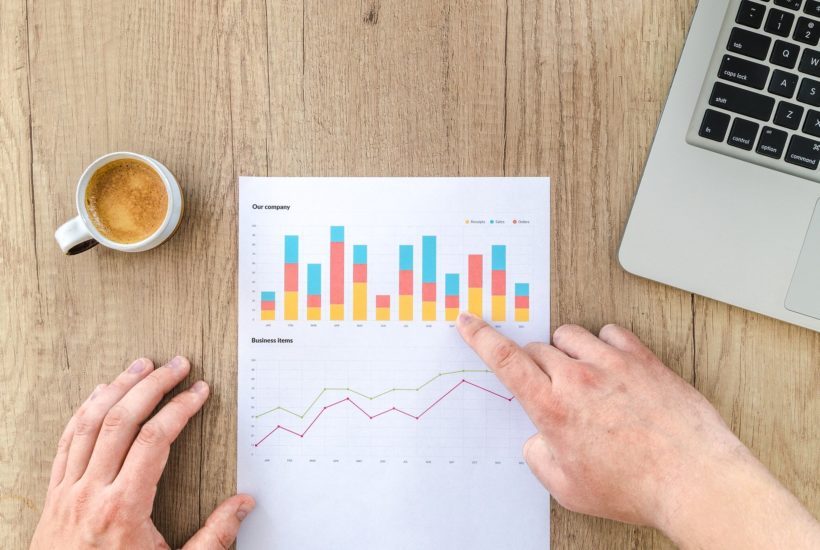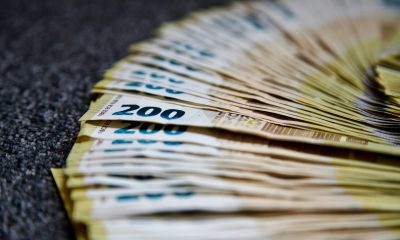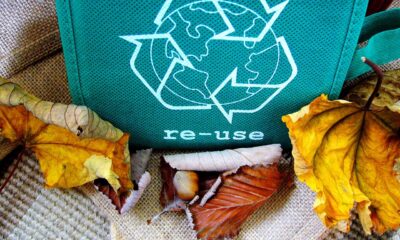Featured
Sustainable finance as an aid for the relaunch of SMEs
Investors are increasingly interested in investing in companies that adopt sustainability criteria, especially given the current crisis. It is not always easy to put together institutional investors and SMEs. Borsa Italiana made a commitment to facilitate the meeting between the needs of institutional investors and those of SMEs that want access to sustainable finance instruments.

ESG and small and medium-sized enterprises are at the center of the debate in the webinar organized by the Forum for Sustainable Finance, in which several speakers presented analyses, perspectives, and projects. For Borsa Italiana it is essential to bring companies with lower capitalization and institutions closer together.
The adoption of business policies oriented towards environmental, social, and governance sustainability issues represents an opportunity for small and medium-sized enterprises to contain risks, increase long-term competitiveness, and grow. All the more so in a phase like the current one, and in the near future, in which SMEs, the backbone of the Italian entrepreneurial fabric, must try to recover from the negative impacts of the COVID-19 crisis.
If you want to find more details about the importance of sustainable investments and to read the latest business news, download the Born2Invest mobile app.
The first question to answer is what sustainable finance can do for SMEs
Alfonso Del Giudice, Associate Professor of Corporate Finance at the Catholic University of the Sacred Heart, recalled that according to the IMF, it estimated that the world’s GDP would collapse, but also predicted that the recovery would come later. “But this recovery will be particularly fast if at the end of the lockdown companies survive and consumers still have money in their pockets,” Del Giudice said.
According to the professor, the support measures developed by the government with the Relaunch Decree are positive, but SMEs are often very fragile from a financial point of view. Therefore, they need tools to restructure finance, and thus be able to grow, not only to survive.
Investors, for their part, are increasingly interested in investing in companies that adopt sustainability criteria, given that even in this difficult period there has been “a clear difference between the traditional indices and the ESG indices, which seem to have been more resilient to shock. This is because ESG issuers are perceived as less risky, as they have more stable cash flows.”
“If we see the most important factor that does not expose to systemic risk – continued Del Giudice – we note a prevalence in companies that have an excellent ‘S’, a factor that has returned to the attention overwhelmingly in this period of crisis.” Companies that have healthier working environments, that already practiced smart working before, that treat workers better and manage the supply chain better are more appreciated, he explained.
Sometimes, unfortunately, a sort of mismatch occurs with companies that are smaller in size
A study carried out by Cattolica together with Equita showed, for example, that some companies were heavily underestimated in terms of sustainability, because they carried out meritorious actions that escaped the rating providers. “We pointed out that it would have been important to value some undervalued factors (for example, the use of local suppliers, the absence of relocation, initiatives in favor of the local community and corporate welfare, work flexibility, ed), for a recalibration that would have raised the rating by 5.7%. If the same companies had also published the company policies on the site, they would have obtained an overall benefit of +11.3% on the ESG rating,” added Del Giudice.
The Pmi&sostenibilità binomial has, however, received a boost in recent times, especially thanks to the regulatory push, which has led companies to become more sensitive to the issue. In addition, there is obviously the growing interest of investors, who, as Del Giudice said, no longer simply take into consideration the aspect that until now had been considered the most important in the acronym ESG, that is, the “E” relating to environment, but also the “S” for social.
The issue is also very important in the evaluation of the audience of listed companies
Alessandra Franzosi, Head of Asset Owners & ESG Investing, Capital Markets of Borsa Italiana – LSEG, recalled that out of 350 listed companies, 290 are medium-sized. “And the main IPOs in recent years have come from smaller companies,” added Franzosi. In such a framework, it is clear that the issue of sustainable finance instruments applied to SMEs is assuming a central importance, given that small and medium-sized enterprises represent an essential part of the economic and financial landscape, and that even the latest regulatory initiatives in the European Union “start from the assumption that through the reallocation of capital we can achieve the results of sustainability that we have set ourselves for 2030”, recalled Franzosi.
Of course, it is not always easy to put together institutional investors and SMEs, because as the manager of Borsa Italiana stated “the framework was developed for large issuers.” On the part of the Stock Exchange, a commitment was being made to facilitate the meeting between the needs of institutional investors and those of SMEs that want access to sustainable finance instruments.
A promising fact, in this framework, is that Esg investment has become mainstream
This means that it has been increasingly integrated into the policies of large institutional investors, who are gearing up to transfer these strategies to all their assets. Including other asset classes such as fixed income, alternatives and last but not least – specified Franzosi – small and medium enterprises.
For this reason, it is important to “evaluate that small and medium enterprises are well equipped, because otherwise they risk leaving the investment universe by institutional investors.” Companies must equip themselves with information sets, and communicate sustainability, but in doing so “they must ask themselves who is the final recipient, because institutional investors have special needs,” said Franzosi.
That is, they need to know that sustainability is integrated into corporate strategies, how the business model is changing in pursuing sustainable objectives and how the company can even benefit from these changes. They also need to have indications of intangible values that create value in the long term, and this communication must complement the communication on financial data. There is the need for data that is accurate, comparable over time, and consistent. “It is on sustainability disclosure that competitiveness will be played out,” said Franzosi.
__
(Featured image by Gorumbik via Pixabay)
DISCLAIMER: This article was written by a third party contributor and does not reflect the opinion of Born2Invest, its management, staff or its associates. Please review our disclaimer for more information.
This article may include forward-looking statements. These forward-looking statements generally are identified by the words “believe,” “project,” “estimate,” “become,” “plan,” “will,” and similar expressions. These forward-looking statements involve known and unknown risks as well as uncertainties, including those discussed in the following cautionary statements and elsewhere in this article and on this site. Although the Company may believe that its expectations are based on reasonable assumptions, the actual results that the Company may achieve may differ materially from any forward-looking statements, which reflect the opinions of the management of the Company only as of the date hereof. Additionally, please make sure to read these important disclosures.
First published in FocusRisparmio, a third-party contributor translated and adapted the article from the original. In case of discrepancy, the original will prevail.
Although we made reasonable efforts to provide accurate translations, some parts may be incorrect. Born2Invest assumes no responsibility for errors, omissions or ambiguities in the translations provided on this website. Any person or entity relying on translated content does so at their own risk. Born2Invest is not responsible for losses caused by such reliance on the accuracy or reliability of translated information. If you wish to report an error or inaccuracy in the translation, we encourage you to contact us.

-

 Impact Investing2 weeks ago
Impact Investing2 weeks agoItaly’s Listed Companies Reach Strong ESG Compliance, Led by Banks and Utilities
-

 Fintech4 days ago
Fintech4 days agoFindependent: Growing a FinTech Through Simplicity, Frugality, and Steady Steps
-

 Impact Investing2 weeks ago
Impact Investing2 weeks agoCDP Approves €1.5 Billion Package to Boost Industry, Renewables, and International Development
-

 Impact Investing6 days ago
Impact Investing6 days agoThe Sustainability Revolution: Driving a Net-Zero, Nature-Positive Economy

























